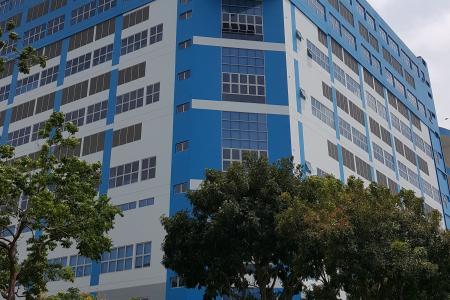Why Singapore workers must adapt to changes
S'pore workers must learn to adapt, the way this SME successfully did
The Government is providing a slew of measures to help SMEs stay afloat in the short term - from loan assistance to foreign worker levy.
In the longer term, it has announced measures to help SMEs innovate, increase productivity and grow.
But why spend so much effort and money on SMEs? How does it help Ah Seng, Dollah, Samy and D'Cruz, the men in the street?
The answer is simple: When SMEs flourish, Singaporeans benefit, too.
Today, SMEs employ more than 60 per cent of our workforce.
Although unemployment remained low at 1.9 per cent, redundancies increased last year. Some who were laid off also took longer to find jobs.
So SMEs can help pick up the slack.
Let me use Finance Minister Heng Swee Keat's example of Singapore firm Xin Ming Hua, which started off in 1955 as a humble machine repair and maintenance shop with two workers in Kitchener Road.
Today, it is one of the largest distributors of engines and power systems in Asia, with a staff strength of over 250 after acquiring two companies.
In the last financial year, it reported a revenue of $91.5 million and operates from a seven-storey building in Tuas.
This SME was highlighted by Mr Heng as an example of "vibrant enterprises that change and transform with the times".
That was the other aspect of the Budget speech that struck a chord - transformation.
Mr Heng used the word nearly 40 times during his Budget speech.
SMEs here have to do this to remain viable and keep or increase their workforce.
Transformation was a critical factor in Xin Ming Hua's growth, said its finance director, Ms Jessie Koh.
After the 1997 financial crisis, it had to diversify its business in terms of product offerings and geography.
In 2014, when oil markets started to wane, it acquired a company that specialised in integrated marine automation products so as to be exposed to more markets.
Productivity - the other buzzword of Budget speeches over the years - became important for Xin Ming Hua when it expanded.
Last year, it partnered Republic Polytechnic to adopt automation in its warehouse system and managed to achieve productivity gains of up to 75 per cent.
This SME's recipe for survival and success mirrors our own need for transformation.
In the short term, low-income Singaporeans can rely on schemes such as the Workfare Income Supplement to boost their wages.
But these measures can only be temporary.
Transformation is needed, as Mr Heng repeatedly emphasised.
This could mean upgrading our skills with our Skillsfuture credits, or simply being receptive to changes in the workplace.
Ms Koh admitted that there was resistance to new technology among her employees at first.
She said: "But after they realised it was going to benefit them, they bought into the idea. Innovation has to start from the ground up."
Share your views with Linette at
After they realised it was going to benefit them, they bought into the idea. Innovation has to start from the ground up.
- Xin Ming Hua's finance director Jessie Koh on employees buying into the company's transformation
Get The New Paper on your phone with the free TNP app. Download from the Apple App Store or Google Play Store now



